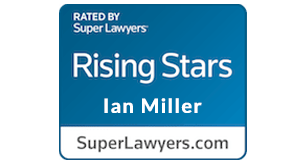What Are Bad Faith Insurance Claims?
Florida policyholders purchase insurance and pay premiums with the understanding that, should disaster strike, their insurer will pay out damages to compensate for losses covered under the policy. Paying out covered damages is considered to be acting in good faith on the part of the insurance company. However, insurance is a business. Insurers provide a service as a way of making money. Because of this, insurance companies often seek to do everything in their power to deny or devalue claims.
While this is usually done within the confines of the law, insurers may sometimes push the limits by failing to properly investigate claims, unreasonably denying claims, or unreasonably devaluing claims. This is known as acting in “bad faith.”
Bad faith insurance claims are an essential element of insurance law, as the ability to file a claim protects the insured and third-party claimants from bad faith practices. However, a bad faith insurance claim can often become complex, and insurance companies generally have excellent legal teams to fight back. As a result, winning a bad faith insurance claim usually requires the help of a skilled Florida injury lawyer.
Types of Florida Bad Faith Insurance Claims
Depending on the type of insurance and parties involved, there are two types of bad faith insurance claims: first-party and third-party.
A first-party claim occurs when an insurer unreasonably denies or declines to investigate a claim that pays out directly to the insured. For example, if your homeowner’s insurance unreasonably denies your claim to storm damage covered by your policy, this would be a first-party claim.
A third-party bad faith insurance claim tends to be more complex. In a third-party claim, the insurer negligently handles a claim from a third party, such as when the policyholder (first party) buys insurance to protect them against liability claims from another (third) party. For example, if you hit another driver and the accident is determined to be your fault, the other driver can hold you liable for damages, which would be covered by your car insurance. If your insurer handles this claim negligently and unreasonably refuses to pay out covered damages to the other motorist, this would be a third-party claim.
Situations that Rise to the Level of Bad Faith
By law, insurance companies are bound to uphold a duty of good faith towards their policyholders. In reality, insurance companies are incentivized to pay out as little as possible when large claims are filed. The following situations are usually considered “bad faith” in court:
- When the insurance company fails to fulfill its duties
- Flat out refusal to pay a reasonable claim
- Misrepresenting the facts or the insurance policy
- Failing to fully or properly investigate a claim
- Insurer requires an unnecessary or absurd level of paperwork or evidence
- Attempts to pay a lower amount than your claim is worth
If these situations sound familiar, then it’s advised that you consider pursuing a bad faith insurance claim.
Properties of a Bad Faith Claim
If you decide to pursue a bad faith claim against your insurer, then you will have to prove two things:
- The insurance company has withheld benefits;
- The reason for withholding these benefits is unreasonable.
Remember, a denied claim may not rise to the level of a bad faith claim. If your insurance company can provide a legitimate and legally recognized reason for withholding your benefits, then a lawsuit may be futile.
What Damages are Available in Bad Faith Insurance Claims?
There are several damages an insurer may have to pay in a bad faith insurance claim. They include:
- The full cost of the damages in the original claim
- The plaintiff’s attorney’s fees
- Statutory interest
- Statutory penalties
- Emotional distress
- Punitive damages
- Economic loss
If your claim is successful, then your insurer may be obligated to pay more than your original claim was worth.
If you have concerns about your insurance policy, Miller Trial Law can assist you. Contact us for a free, no-risk consultation prior to filing your claim.
Please call us today at (305) 697-8312. We look forward to serving you!









